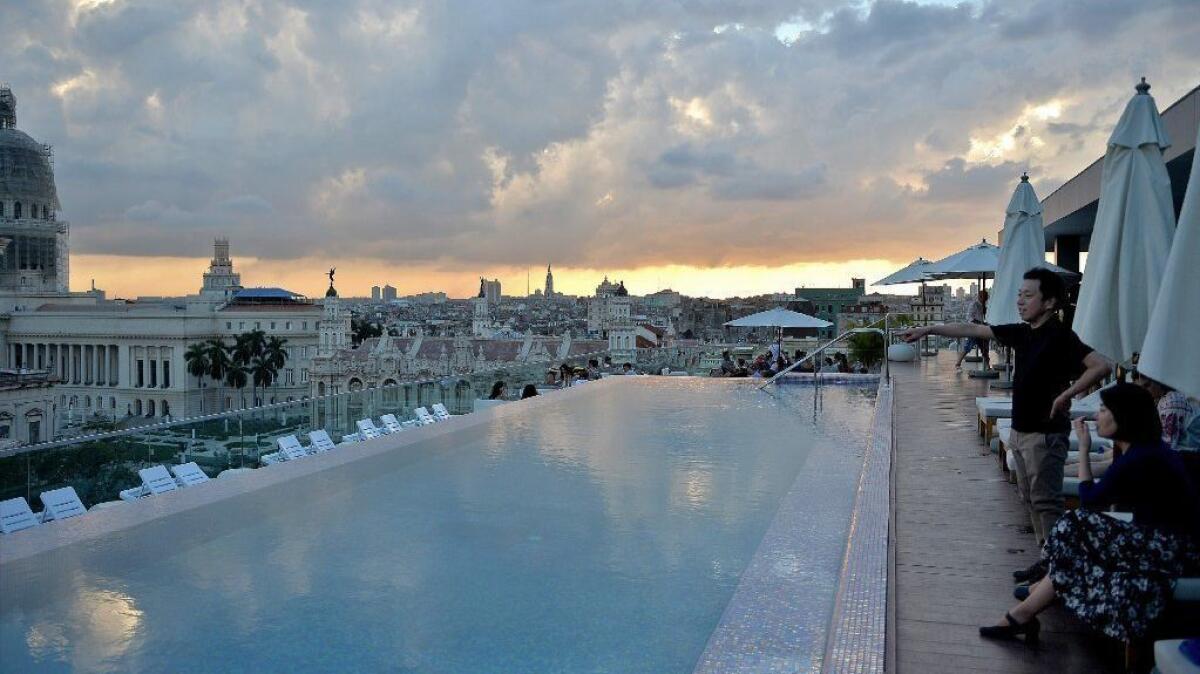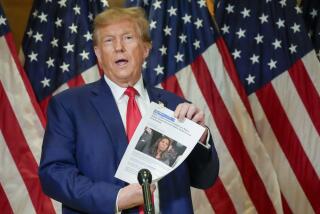White House to allow U.S. citizens to sue over property confiscated in Cuba decades ago

- Share via
Reporting from Washington — Ending more than 20 years of practice, the Trump administration will allow U.S. citizens to sue over property confiscated from them in Cuba after the 1959 revolution, with potential defendants including the Cuban government and major European and Canadian companies.
President Trump will announce the decision on Wednesday, a senior administration official said Tuesday, and his national security advisor, John Bolton, will provide details in a speech in Miami to survivors of the failed CIA attempt to invade Cuba at the Bay of Pigs in 1961.
The administration official, who requested anonymity to discuss the plan, said the move is intended to increase pressure on Cuba and its communist-led government. Among other grievances, the White House accuses Cuba of propping up Venezuelan President Nicolas Maduro, whom the administration is attempting to oust.
Allowing the lawsuits against foreign companies to proceed in U.S. courts could unleash years of legal wrangling with limited chances of financial payoffs for the plaintiffs, experts said.
Until now, U.S. presidents issued waivers that suspended the lawsuit provision of the 1996 Helms-Burton Act, a bill that strengthened the U.S. embargo against Havana.
Trump, who is eager to reverse President Obama’s overtures to Cuba, will discontinue the waivers and allow lawsuits to be filed in U.S. courts.
The Justice Department has determined that 5,913 claimants have potential cases. The value of those claims, with interest, is estimated at $8.5 billion.
“This authorizes the lawsuits, but it doesn’t mean money is going to flow overnight,” the administration official said, adding that it “sends a powerful signal.”
Some plaintiffs may decide suing is too expensive, and several claims were previously settled privately.
Trump’s goal is to discourage companies from doing business with and investing in Cuba. Scores of European, Canadian, Israeli and Asian firms work on the island, owning or running hotels, ports, utilities, transportation and other services. They include Melia, Mitsubishi, Nestle and similar conglomerates.
Some of the businesses may have bought or leased property that the government of the late Fidel Castro seized in the wake of the revolution that brought him to power, as he nationalized oil refineries and confiscated homes and lands belonging to Cubans who fled leftist rule.
In March, the Trump administration allowed a limited number of lawsuits to be filed against Cuban military officials who had confiscated American-owned property.
The new step significantly expands the pool of potential defendants. Trump will also announce measures to make it easier to deny or revoke visas from people or firms using confiscated property.
Anticipating Trump’s move, the European Union warned the administration it will lodge a formal complaint with the World Trade Organization if European interests in Cuba are harmed.
The EU will “use all means at its disposal, including in cooperation with other international partners, to protect its interests,” the group’s foreign policy chief, Federica Mogherini, and Trade Commissioner Cecilia Malmstrom wrote in a letter to U.S. Secretary of State Michael R. Pompeo last week.
The administration official accused the companies in Cuba of participating in “20 years of profiting in property stolen from American citizens.”
Bolton’s speech in Miami, in addition to discussing the new avenues of legal redress, is expected to detail another batch of sanctions against Cuba, Venezuela and Nicaragua. In a similar venue last year, Bolton designated the three leftist-ruled governments as a “troika of tyranny.”
Twitter: @TracyKWilkinson
More to Read
Sign up for Essential California
The most important California stories and recommendations in your inbox every morning.
You may occasionally receive promotional content from the Los Angeles Times.














